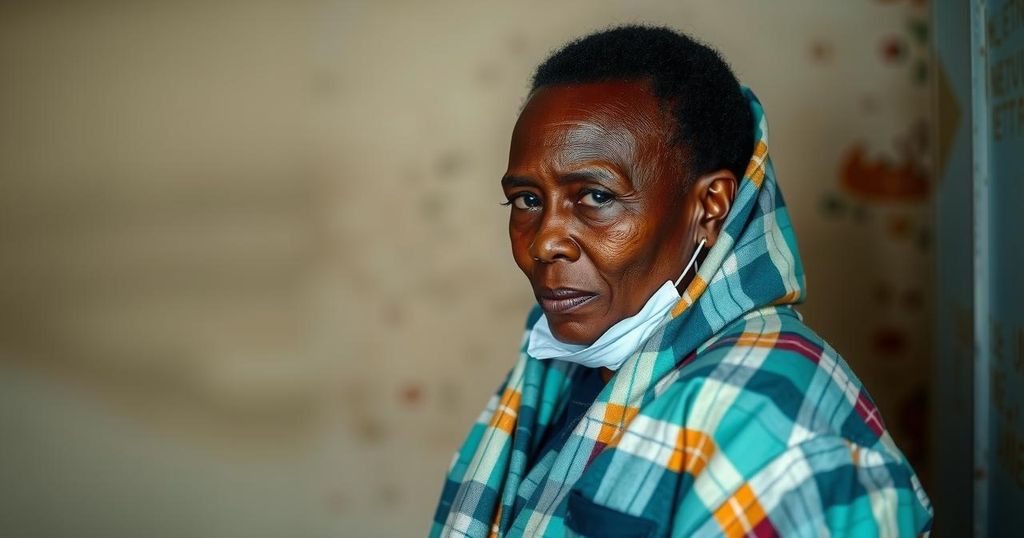An unidentified illness known as Disease X is spreading in the Democratic Republic of the Congo, affecting malnourished individuals and resulting in fatalities, predominantly among children. Currently, health experts are attempting to determine the nature of the disease amidst logistical challenges and limited testing capabilities. Investigations point towards previously known pathogens, with malaria being a significant concern due to the region’s endemic nature.
The recent emergence of an unidentified illness, referred to as Disease X, in the Democratic Republic of the Congo (DRC) poses significant healthcare challenges, as health officials struggle to determine whether the pathogen is viral or bacterial. So far, the DRC has reported 406 cases of this illness, primarily affecting malnourished individuals, and resulting in 31 fatalities, predominantly among children. The outbreak is mainly located in the remote Panzi district of Kwango province, which suffers from inadequate access to healthcare infrastructure and challenging logistical conditions.
Experts believe that Disease X is likely not a novel pathogen but rather a known illness, although the specific disease causing the current outbreak remains unidentified. Paul Hunter, an epidemiologist at the University of East Anglia, noted, “Reports of outbreaks with fatalities crop up somewhere in the world several times a year. Almost all turn out to be an already well-known infection with limited global consequences.” Jake Dunning, an infectious disease specialist at the University of Oxford, further elucidated the situation, stating that it would be more appropriate to consider this an undiagnosed event rather than labeling it as Disease X.
The symptoms reported include fever, headache, cough, and anemia, which have compelled health officials to investigate the potential links to common diseases such as pneumonia, influenza, COVID-19, measles, and malaria. However, the possibility of co-infections with mosquito-borne diseases like dengue and chikungunya cannot be ruled out. The World Health Organization (WHO) has reported that malaria, being endemic in the region, could significantly contribute to the ongoing health crisis.
Currently, the Africa Centres for Disease Control and Prevention (Africa CDC) has initiated efforts to assist local authorities and the WHO in investigating the cause of the outbreak. This effort includes deploying scientific and health experts and conducting laboratory tests to identify the pathogen involved. Yet, the remote nature of the region, combined with limited healthcare resources, complicates the investigation. Dunning pointed out that the DRC, despite having capable healthcare professionals, operates under significant resource limitations, which hampers timely responses to emerging infectious diseases.
Moreover, the absence of swift testing capabilities poses a considerable obstacle in ascertaining the cause of the outbreak, as local laboratories are only able to identify common pathogens. High-precision techniques, such as gene sequencing required to detect rarer pathogens, are typically accessible only in specialized laboratories, often located abroad, leading to additional delays. Therefore, both local health authorities and international teams are diligently working to understand the transmission dynamics of the disease and monitor potential new cases in communities.
The deputy governor of Kwango, Remy Saki, announced measures aimed at curtailing the epidemic’s spread, such as restricting movement and ensuring health safety protocols. The need for continuous investigations and prompt implementation of treatment and control measures is critical to managing the health crisis in the region effectively.
The recent outbreak of a disease in the Democratic Republic of the Congo highlights significant challenges in global health responses, especially regarding undiagnosed illnesses in resource-limited settings. Health officials grapple with determining the nature of the outbreak, with overwhelming circumstantial evidence suggesting that the illness may not stem from a novel pathogen. Understanding these dynamics is crucial for developing effective health strategies and ensuring prompt treatment for affected communities.
In conclusion, the unidentified illness erupting in the DRC, dubbed Disease X, is generating considerable concern among health officials as they attempt to establish its cause amidst logistical hurdles and limited testing capabilities. Experts believe this outbreak is likely related to pre-existing known infectious diseases rather than a new pathogen. Comprehensive investigation efforts are underway, necessitating timely and efficient healthcare responses to mitigate the impact on affected populations.
Original Source: www.dw.com






